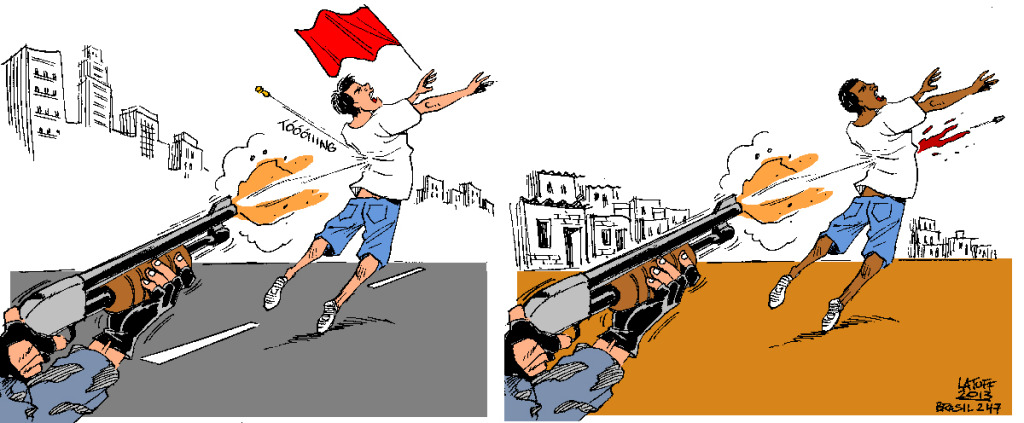A lot of people have been asking me to comment on recent events in Ferguson and now this week, with the uprisings around the case of Eric Garner in New York. I am all of the sudden supposed to be an authority on police brutality, as I inadvertently became the victim of this kind of violence when I was beaten by a number of military police in July in Rio de Janeiro, after just having completed a documentary focused on the topic of police brutality (rhythmsofresistance.info). When a privileged white foreigner receives a mild beating at the hands of Brazilian police, it makes international headlines, whereas the same police carry out summary executions every day in the favelas with complete impunity. I was also in the streets of Toronto during the now infamous G20, a rare moment where we saw police brutality reach beyond our ghettos and arrive on the main streets of Toronto, so even us privileged white folks could get a taste of the kind of repression long suffered by poor communities the world over.
Of course, the police brutality we saw on the streets of Toronto during the G20 is much the same as what I have been encountering recently in Brazil: rubber bullets, tear gas, water canons… all the types of non-lethal weapons of repression which constitute the fastest growing category of international arms sales. The new weapons are not for fighting foreign enemies, but rather are used to repress and silence one’s own people, the so-called “internal enemy.” This term, borrowed from dictatorial politics, applies equally to silencing political dissent in many modern day “democracies” like Brazil and Canada. It’s difficult to raise one’s voice when you are choking on tear gas.
While these weapons are not without harms, my own experiences with such “police brutality” have been a picnic when compared to the far more egregious police violence perpetrated against mostly black and mostly poor people every day. As far as I can see, the discussion we should be having right now is not about police brutality, it’s about racism – two uncomfortable bedfellows. Read more
